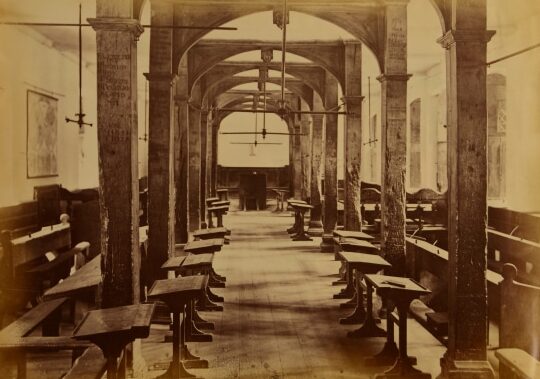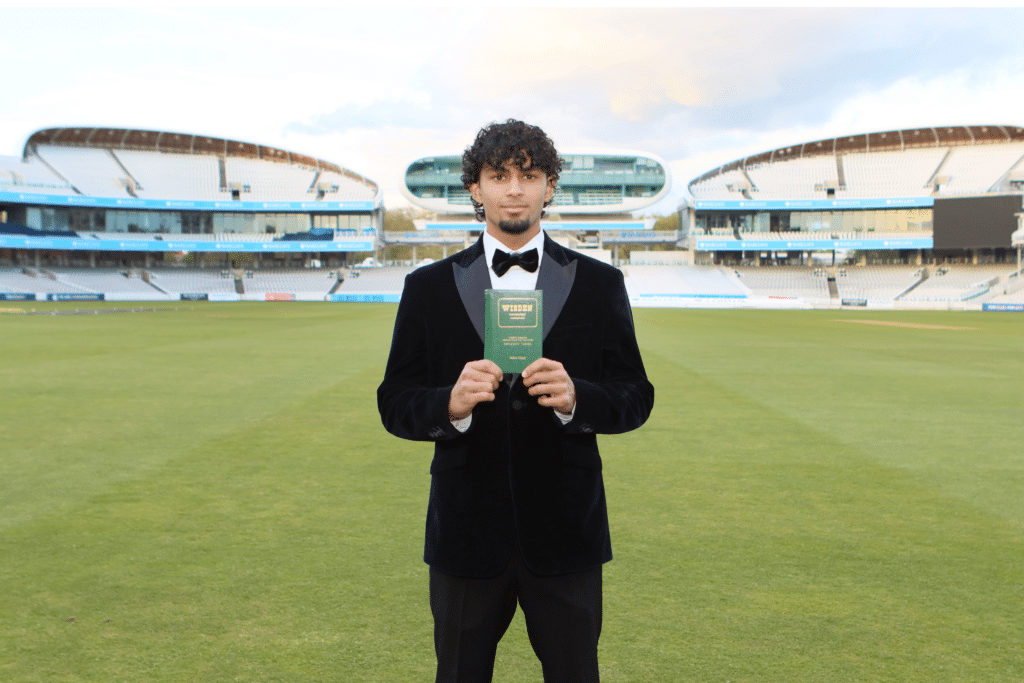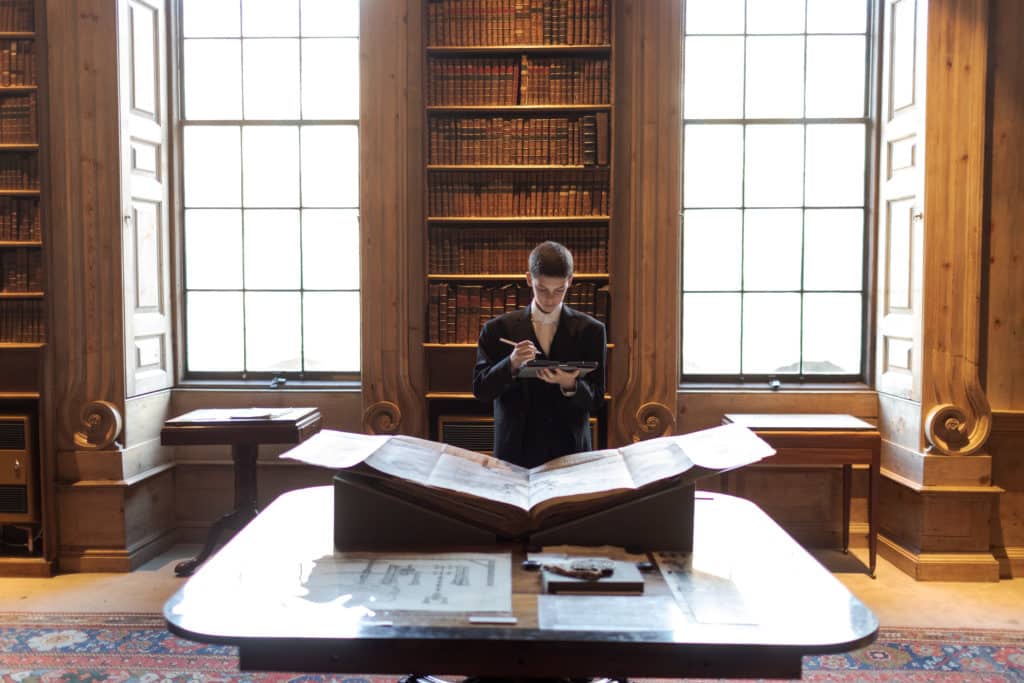Henry wanted his subjects to have the opportunities of gaining knowledge that he had enjoyed, and he made provision for 70 poor boys, known as King’s Scholars, to be housed and educated at Eton free of charge. Alongside them, other boys could also benefit from the free education, but they would have to pay for their accommodation. These boys became known as Oppidans (from the Latin, oppidum, meaning town). The College would be run by a Provost and 10 Fellows, with a school Master to oversee the education, and a choir for the Chapel. To fund this, Henry VI gave a large amount of land, rights and other benefits, including the right to swans on the Thames.
Henry VI Exhibition
Created to celebrate the 600th anniversary of his birth at Windsor in December 1421, an exhibition held in Eton’s Verey Gallery from 20 November 2021 to 8 May 2022 sought to explore Henry’s life and his achievements, with a focus on what has been described as one of the only good things to come out of his reign – the foundation of Eton College.
This online exhibition has been adapted from the physical one and features a different selection of objects.
Lessons in Latin
Originally, the boys were taught Latin and Latin alone, although Greek was added to the curriculum in the early 17th century. They were taught in Lower School and were as young as five years old. The school day began at 5am with prayers, before lessons began at 6am. Lessons finally finished at 8pm, and there was a single hour of play allowed each day. There were two holidays in the year, at Christmas and in the summer, although the boys did not go home at Christmas. This divided the year into two halves and is the origin of the Eton name for a school term, despite there now being three.

Boys as young as five were taught at Eton in the early days.
The first proper Boarding House, Jourdelay’s, was built in 1722 to accommodate the growing number of Oppidans. 40 years later, there were 13 Houses, largely run by teachers, known at Eton as Masters. Today there are 24 Boarding Houses, plus College where the King’s Scholars live.
Jolly Boating Weather
During the reign of George III, the School continued to grow. King George was a frequent visitor to the School and regularly entertained the boys at Windsor Castle. As a result, his birthday, the Fourth of June, became a major celebration at Eton and continues to be an important event in the school calendar, marked with speeches, cricket, and the procession of boats.
Mathematics on the Timetable
By the mid-19th century, however, changes were long overdue. In 1851, the first new subject had been added to the curriculum – Mathematics, but many other areas needed improvements. The Clarendon Commission of 1861 led to significant changes including better accommodation, a wider curriculum and better-qualified staff. As a result, by 1891 there were over a thousand boys in the School, who were all taught a wide variety of subjects in new purpose-built classrooms, laboratories and lecture halls, together with a museum and library.
Floreat Etona
In the 20th century, more changes were made. Greater emphasis was placed on academic ability over family connections, widening access by recognising merit and potential, the Founder’s original aims. The value of extra-curricular activities was officially acknowledged, sports facilities were improved, and a theatre and concert hall added. The 21st century has seen this widening continue, with parents no longer able to put their son’s name down at birth. Instead, from 2002, all boys have had to earn their place through interviews, tests and references.
Today, the emphasis continues to be on offering opportunities to boys from all backgrounds, with growing numbers receiving substantial fee remissions. A wide and varied curriculum sits alongside time for Sports, Music and Drama, aimed at developing the whole person.



